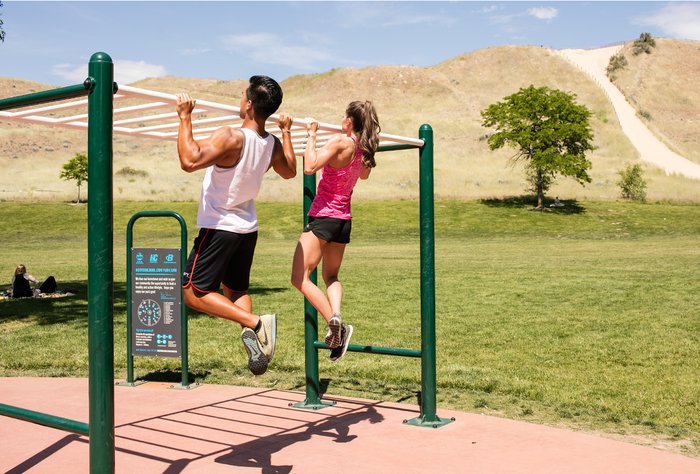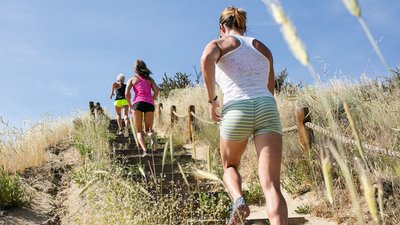Long days and warm weather are an open invitation to exercise outdoors, but there are extra precautions you have to consider when you no longer have access to AC.
To understand why you need to take precautions in hot conditions, you first need to know a little about how your body functions during exercise in general. The work you do is powered by the calories you eat, which is how you can burn off several hundred calories during a good workout. Heat is a byproduct of exercise, which then must be removed from your body to prevent overheating. Heat is carried to the skin and released with small amounts of water via sweating.

Sweating releases heat, but it's the evaporation of sweat—not simply sweating itself—that actually cools the body. That's one reason why using a good fan while sweating can immediately make you feel cooler.
In hot and humid environments, the air is already quite moist, so very little evaporation can occur. Instead of cooling off, heat begins to build in your body, and it could even reach dangerous levels.

High summer temperatures can contribute to a rise in body temperature independent of exercise. Once you begin training outdoors in summer heat, the ambient temperature can make it even more difficult to release body heat. You simply may not be able to sweat (and allow for evaporation) fast enough to keep up with environmental conditions.
Sweating also means that your body loses water to help you stay cool, but that water needs to be replaced. If you lose more than about two percent of your body weight via sweat, it starts to significantly affect your performance and put you at risk of a heat-related illness. It's important to remember never to restrict water consumption when training outdoors, even if you don't feel thirsty!

Here are a few simple pointers that will help you stay cool during outdoor activity:
- Since evaporation helps keep you cool, a gentle breeze—even a breeze you generate—can help. You might have an easier time staying cool by bicycling instead of playing tennis, for example.
- Wear light colors on hot days so radiant heat is less likely to be absorbed via your clothing. Lightweight, loose clothing can also help, especially if you have a moisture-wicking fabric that can keep moisture away from your skin and dry quickly. Don't wear rubber garments that are designed to make you sweat more; they don't increase the amount of work you do, but they can interfere with your body's ability to regulate heat.
- This may seem obvious, but try to train during the cooler parts of summer days, such as in the morning or late evening.
- When taking your training outdoors, give yourself about two weeks to acclimate to the different environmental conditions before you go all out.
- Be mindful of potential heat alerts in your area by paying attention to weather forecasts. Depending on where you live, you should monitor humidity levels, UV index, and even air-quality alerts.
- Endeavor to train in shady areas rather in direct sunlight.
- Pull back on the intensity and duration of your outdoor workouts if conditions necessitate. That may mean walking instead of jogging your favorite outdoor course.
- Switch your training to a pool-based workout.
- Drink plenty of water before, during (about 10 ounces every 20 minutes), and after exercise (another 16 ounces). Look for a hydration supplement with electrolytes like potassium and sodium that your body loses via sweat.
- Schedule more frequent water breaks to cool off if you're working out midday.
- Listen to your body. Stop if you're feeling faint, lightheaded, or nauseous.
- Avoid sitting in a sauna or hot tub after an intense outdoor workout in the heat. Those both work to increase your body's core temperature.

